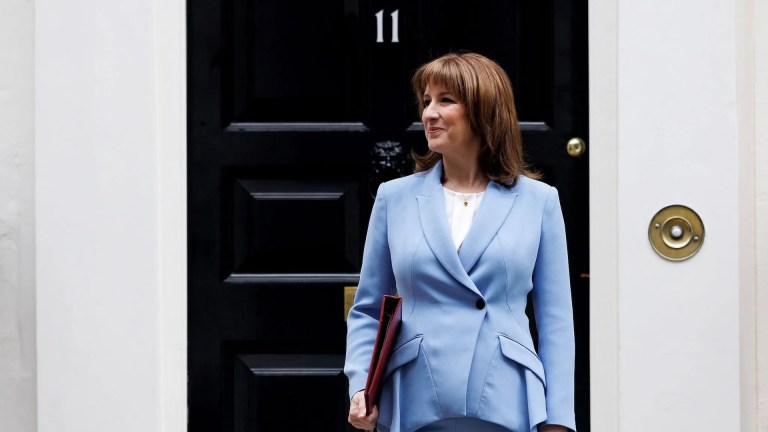Roundly condemned by child poverty charities, it is the single biggest driver of child poverty in the UK.
For Tash, the food bill is the biggest worry. Her children – aged 17, 12, nine and five – “eat her out of house and home” during the summer months.
“I’m like: spreadsheets. I know what’s coming in, I know what’s going out, and I’m like, down to the last penny type thing,” she said. “Like, I know on Tuesday I get child benefit. That’s our food bill. Yes, it’s only, what, £72 now? But then I’m like, right, if we need any more, it’s going to come out of his [my husband’s] wages when he gets paid. So it’s like: ‘Right. I’ve got this that’ll last us till this.’”
“[I tell the kids] you’ll just have to have a piece of fruit. A bag of apples is 69p. I know it’s fruit, it’s healthy, but they don’t want the same thing all the time. And they have said, ‘Why can’t we have something different?’ I’m like, because I just can’t afford it.”
The Resolution Foundation estimates that ditching the cap would lift 470,000 children out of poverty. Even extending support to a third child – a policy currently being considered by the government as it mulls over its child poverty strategy, to be released in the autumn – would lift 280,000 from poverty. It would cost the government between £2.5 billion and £3.6bn per year.
Earlier this month, the Scottish government set a date for ditching the policy: March 2026. The move will mean 20,000 fewer children will be living in relative poverty from 2026/2027, according to estimates from the Scottish government.
Advertising helps fund Big Issue’s mission to end poverty
The UK government must follow suit and end the two-child benefit cap in England and Wales, said Meghan Meek-O’Connor, policy lead at Save the Children UK.
“Ending the two-child cap would be one of the fastest, most cost-effective ways to reduce child poverty,” she told Big Issue. “The additional £293 per child per family that scrapping this cap would bring would be enough to move hundreds of thousands of families out of poverty.
“Going without this money forces families into impossible choices, that affect them and their children. Children are going without items they need for school, not attending birthday parties, or missing out on school trips, because there’s not enough money for these things.”
Proponents of the cap argue that it reduces welfare spending; introducing it, chancellor George Osborne said it gives those on benefits “the same financial choices about having children as those supporting themselves solely through work”.
But research suggests that the cap has had no impact on the number of births. The evidence is clear: people do not have children in order to claim additional benefits.
This “scapegoating” narrative makes Tash feel “angry.” She met her current partner – and father of her youngest child – after her previous husband passed away.
Advertising helps fund Big Issue’s mission to end poverty
“My new partner didn’t have kids and wanted kids,” she said. “So it was like they [the government] were telling me what I can and can’t do. And yeah, I get they don’t want to spend out the money but this should be my choice, whether I have another child or not, not their decision.”
Scapegoating distracts from the real problem, Meek-O’Connor adds – the cap is driving child poverty up.
“Without scrapping it, they are likely to be the first Labour government to oversee a significant rise in child poverty,” she said. “We are hopeful that Labour will make a clear, funded commitment to removing the two-child limit and lifting 500,000 children out of poverty, as part of the autumn child poverty strategy.”
For Tash and her four children, it would make life “that bit easier”.
“I just think that we wouldn’t have to struggle so much.”
Do you have a story to tell or opinions to share about this? Get in touch and tell us more. Big Issue exists to give homeless and marginalised people the opportunity to earn an income. To support our work buy a copy of the magazine or get the app from the App Store or Google Play.
Advertising helps fund Big Issue’s mission to end poverty









